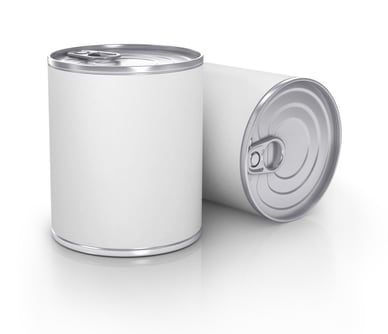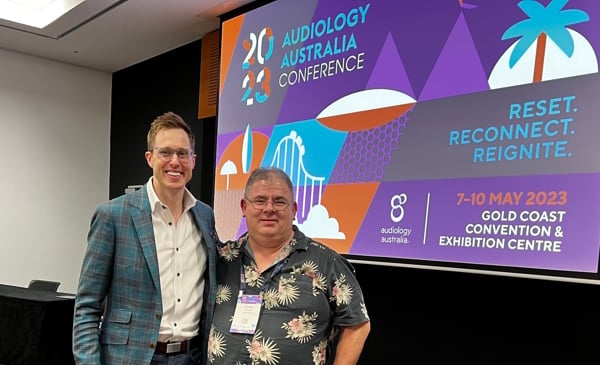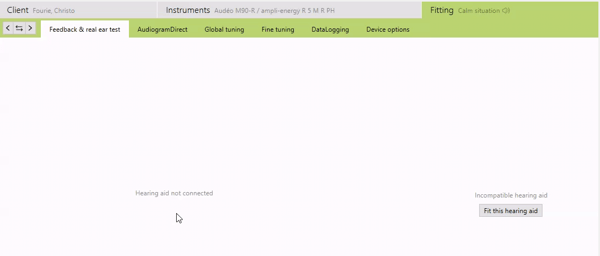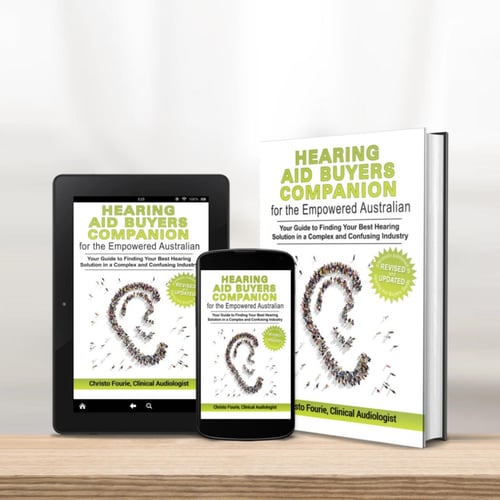by Christo Fourie (Audiologist)
Disclaimer: The contents of this article reflect my personal views and experiences as an audiologist and business owner operating in Australia. This article is not intended to discredit any company, individual, or organisation, nor is it designed to provide professional advice. Its purpose is to share insights on the practice of private/white-labeling of hearing aids and discuss potential impacts on consumers.
Please be aware that I don't possess insider knowledge regarding the strategies behind the creation and distribution of private/white-labeled products. My perspectives are drawn from my professional interactions and experiences and may not be universally applicable or representative of all scenarios.
All mentioned brands and models are the intellectual property of their respective owners, and this article is not intended to infringe upon these rights. The information provided is as is, without any express or implied warranties, including but not limited to, implied warranties of merchantability or fitness for a particular purpose.
Readers are strongly advised to seek professional guidance before making any decisions related to their hearing health. Neither the author nor any associated entities will be held liable for any direct, indirect, incidental, or consequential damages resulting from the use or misuse of the information provided in this article.

What is private labeling?
Private/white-labeled hearing aids are brand-name hearing aids that are rebadged for sale to hearing aid retailers under their own personal brand. My limited understanding is that this potentially gives the hearing aid supplier a volume sales commitment while the retailer receives better pricing. Some private labeled hearing aids have been rumoured to be older generation models and/or may or may not have some features missing compared to the original brand model. I have been unable to confirm this. Others are exactly the same as the original maker’s brand. It is hard to know as specifications are hard to come by as you'll see later.
Being able to supply private labeled hearing aids under your own brand would typically only be an option for the largest retailers as it requires significant volume commitments from the various wholesalers. The retailers mentioned in this article hold the bulk of the Australian Hearing Aid Market and would help thousands of patients a day between them. I have seen some examples of where these retailers have fitted brand-name hearing aids, but I do wonder if their profit margins might be better on the private label sales...
 Dr. Cliff Olson (Aud), stated in his keynote address at the National Audiology Australia Conference on the Gold Coast in May 2023, that White Label hearing aids are something he feels strongly about as it impacts consumer choice the in the Australian Hearing Care industry.
Dr. Cliff Olson (Aud), stated in his keynote address at the National Audiology Australia Conference on the Gold Coast in May 2023, that White Label hearing aids are something he feels strongly about as it impacts consumer choice the in the Australian Hearing Care industry.
Dr. Olson mentioned to me later that he is considering creating a video for his Youtube channel addressing white-label hearing aids as the message fits in perfectly with his position as a consumer advocate when it comes to hearing loss.
Examples of Private-labeled hearing aids in Australia
- Ampli-mini
- Ampli-connect
- Ampli-energy
- Ampli-easy
- Advance Standard
- Advance Plus
- Advance Premium
- Advance Super
- Advance Elite
- Kirkland and others
These private labels, at the time of writing, contain hearing aids from Phonak, Oticon, Unitron, Signia, and GN Resound. As far as I can determine, they may contain a mixture of current and possibly older-generation hearing aid models from these major brands.
Update: Gn Resound has recently won the Hearing Australia tender as the main hearing aid supplier. Hearing aids supplied under this tender appear to now be labeled under Hearing Australia rather than GN Resound. This was NOT the case while Signia held this tender. Based on our experience with white-label hearing aids up to now, I would expect that Hearing Australia hearing aids may affect you similarly to other white-label products. I have to say that GN Resound and Hearing Australia have been completely transparent about what their white-label hearing aids, supplied to Hearing Australia are and have made the software and device specifications easy to find for any provider. This is certainly a big step in the right direction and may help reduce the potentially negative consumer impact of white-labeling hearing aids. All their products also appear to be from the latest generations, which is great to see.
Examples of Hearing Australia labeled hearing aids:
- Hearing Australia XA
- Hearing Australia XB
- Hearing Australia XC
Lack of clarity
This is exactly where my personal issues with the private labeling of hearing aids come into play.
The information relating to 'what is what' appears difficult to find. If you search for many of these white-label brand names, you'll see what I mean. Forums like HearingTracker have long threads with people looking for scraps of information on these devices. Even though I have made several attempts to approach the various suppliers to get the exact specifications, pricing, and feature sets of their private label brands, only limited information has been provided, and only after pointing out that it is a requirement under the government's HSP program deed of standing offer (The deed allows brands to have their hearing aids sold under the HSP voucher program).
What is more, some of these private labeled products have the retailer listed as the supplier, even though major brands actually supply them. This means that we have to try to get the information from these retailers themselves, which can be highly intimidating considering the size of these companies if you know where to even start in the first place. This complaint is commonly raised on online professional forums and groups by other independent hearing care professionals.
How could it affect me, as a hearing aid user?
It may reduce your options for shopping around in a fully informed manner.
The issue with people in the industry not being able to easily and freely get information about what these products actually apply to consumers as well.
It is my opinion that private labeling may be an effective way to prevent consumers from shopping around on pricing because no one outside of the companies selling and supplying private labeled hearing aids to retailers actually knows what they are.
I have also experienced a couple of instances where a client was told that they were being fitted with the actual original manufacturer’s brand product, but when I looked up the device code provided by the client for the aid, it was actually the private labeled product they were offered. The client asked me why my device code differed from the one she was given, so I shared a screenshot of the HSP schedule of devices showing the devices she was offered as the brand name was actually the private label version. Due to a lack of transparency with these products, I was unable to confirm if the two products were in fact equivalent. So the client believed they were getting one thing, but might actually have been getting another. I recently saw an Amplifon review that confirms this experience by another user: https://www.productreview.com.au/reviews/a572c27e-6379-56af-9874-0de7ceafb809
If industry experts don't know, or can’t easily determine what these devices are, how are you supposed to know what they are? How can you shop around for the best value without a clear understanding of what you're actually buying?!
It may make it difficult for you to leave the private-label retailer
We all hope to find the best audiologist for our needs and stick with them forever. In reality, though, relationships do not always last, staff turns over, you move home, clinics close or relocate or the company's policies become unfavourable to your needs. When this happens, it usually is quite easy to take yourself and your hearing aids to another provider to continue care there, forever bidding the other clinic farewell if you wish. I suspect it might not be so easy with private-label hearing aids...
It might be difficult for the new clinic to find the means of programming the aids
Original equipment manufacturer (OEM) branded hearing aids can be fitted by most clinicians and most clinics are able to negotiate favourable pricing and discounts on them that they can pass on to you. This is especially true if both the new provider and the supplier are registered under HSP as they both agreed to the same conditions under the contract. The software for the OEM (actual manufacturer) brands is readily available from the supplier, and these hearing aids are mostly ‘unlocked’, meaning any clinician can easily program or tweak them for you.
The same cannot be said about private-label hearing aids from my experience.
When we have clients relocate with private-label hearing aids, we first need to find out whom to contact to get the programming software. This is no easy task. In turn, it means you may have to wait sometime before you can be seen and adjustments can be made. Sometimes the private-label hearing aid software has overwritten the branded software on our computers, stopping us from programming some of the newer branded hearing aid generations. We have had them reinstall the OEM brand software to make things work again, which adds unnecessary, frustrating, and time-consuming steps.
What happens if one hearing aid out of a set needs replacing?
I only realised the problems a lost or damaged beyond repair private labeled aid poses very recently.
I received some pricing on private labeled aids from the one supplier who has responded to my requests for information. They supplied the wholesale pricing for these aids, which is higher than the retail pricing to the client (as quoted by the private-label retailer)!
When I enquired regarding industry standard discounting agreements for these products, I was informed that they do not apply to these ranges. This means that if you were to relocate to me, or anyone else, the pricing for these exact private-label aids would be more than you originally paid! Naturally, your best bet would be to return to where you got it from originally as the pricing is better on this specific private-label model.
This is complicated even more when a major retail competitor is listed by the government as the OEM supplier. Another retailer basically stands no chance of being offered fair pricing on these hearing aids even though the HSP deed of standing offer forces them to sell them to the clinic. The deed, however, mentions nothing about discounting to other retailers.
Please note that any branded hearing aid can also succumb to this problem if it is not supported by the manufacturer anymore. This does typically not happen for around 5-7 years from the date a hearing aid is first sold on the market. With White-label products, this could potentially be a problem much sooner.
What can a clinician do in this case?
Easy I thought! If the private-label aid is indeed the same as the original branded model, why then not fit the actual brand model to match the private-label hearing aid on the other ear? I tested it out this morning (2/6/21). The private-label version of the fitting software told me in no uncertain terms: "Incompatible hearing aid".
So it seems you are unable to link a private-label aid with the actual OEM brand model and adjust them as a pair! Adjusting as a pair is critical for best results as most modern aids ‘talk’ to each other and can only do so if adjusted together!

View the gif here: https://share.getcloudapp.com/E0uAdwQJ
So it does appear that with at least one very major manufacturer, you are effectively locked into that private-label provider unless you change both your hearing aids, even though you may only need one.
I hope you don't enjoy stress-free overseas travel!
As mentioned by Teddy-John in the comments below, traveling with private-label hearing aids overseas might be more complicated. This could particularly be true if one of your hearing aids is lost or damaged overseas, needing repair or replacement. Just this very morning we had someone contact us from Canada. They had traveled there to visit family for an extended period of time after purchasing a pair of Advance branded (private-label) hearing aids in Australia. They were however under the impression they were Unitron hearing aids. He had lost one and went to a local Canadian Audiologist to obtain a replacement aid, only to be told, they were unable to adjust or even source a replacement for him. The aid was also not compatible with their available Unitron hearing aids. So the client, who initially saved money on buying a private-label hearing aid, now faces the very real possibility of having to buy a brand new pair of real brand hearing aids or stay with only one ear working until he returns to Australia several months later. We tried to help by contacting Unitron Australia with the serial number. Only then did we figure out it was actually a private-label model; not a Unitron branded aid.
So if you do wish to go down this private-label route, make sure you only travel to places or countries where the white-label hearing aids can be repaired and/or replaced, or make extra sure you don't lose or damage them! Real-brand hearing aids are generally available globally and help is normally not far away. The same apparently cannot be said for all private-label hearing aids.
Private-label hearing aids may not be for sale as long as the branded models, making finding a replacement challenging
Just recently we had a client who was fitted (not by us) with a private-label hearing aid made by GN Resound. They had lost one of the pair of devices and only wanted to replace a single aid to match the one they had remaining. The private-label provider had apparently discontinued this model, despite it still being easily available for sale under the branded model. The client opted for the branded model as a replacement, rather than having to fork out for a brand-new pair of hearing aids. Unfortunately, the branded model is not fully compatible with the private-label model and now the client cannot sync the two hearing aids for volume control, audio streaming, and other binaural features. Brand name models are often sold for many years after they have been superseded in order to support clients in this exact situation. It appears from this case that the same might not apply to private-label hearing aids. This strategy may also benefit the private-label retailer as clients in this situation may be effectively "forced" to purchase two new hearing aids rather than simply replacing a single device at a lower cost.
Pros and cons of Private label hearing aids
Below, you'll find my take on the pros and cons of these non-OEM (Original equipment manufacturer) or private-label hearing aids:
| Private-Label Benefit | Benefits Consumer | Benefits Private label retailer |
| Increased difficulty for the consumer to shop around on price | ❌ | ✔️ |
| Pricing might appear more attractive than branded products | ✔️ | ✔️ |
| Gives the retailer greater control over product pricing in the market | ❌ | ✔️ |
| Might make it more difficult for the user to switch providers | ❌ | ✔️ |
| Allows for strong branding, creating the impression that the retailer has unique hearing aids of their own | 😐 | ✔️ |
| Effectively reduces competition from smaller Australian-owned companies too small to use private-labels | ❌ | ✔️ |
| The retailer potentially enjoys larger margins by selling private-label hearing aids compared to branded hearing aids | 😐 | ✔️ |
|
You may find it difficult to obtain repair/replacement support if you travel overseas with private-label aids |
❌ | 😐 |
|
Private-label hearing aids may have a shorter sales life, making replacing a single lost or damaged beyond-repair device difficult. |
❌ | ✔️ |
Please let me know if I have missed anything or if there are any points you don't agree with. I am more than happy to stand corrected.
Each consumer has the right to choose to work with whom they wish. I believe that choice should be a well-informed one and that is why I share my personal views and opinions on this and other topics.
I believe all providers, big and small have the client's best interest at heart, so I am not trying to dissuade you from exploring all your available options. I'd urge you to think carefully and ask LOTS of questions if offered a white-label product (hearing aid or anything else) from anywhere. If in doubt, I'd highly recommend you stick to the brand-name hearing aids from the likes of Phonak, Oticon, Widex, Unitron, Starkey, GN Resound, Bernafon, Signia for easy servicing and support, no matter where you find yourself in life.
Did you like the information presented here and want more like it?
The Hearing Aid Buyers Companion for the empowered Australian is for you. I wrote this book over a period of 7 years and with several revisions. It contains everything you need to know about hearing aids presented in a no-nonsense manner. Empower yourself by reading the guide and finding your ideal hearing solution like an expert, irrespective of where you end up purchasing from. The book is a real book and retails for up to $40 in some bookshops. You can however get the full edition in PDF format here for free. Simply complete the form below the image and click download and we'll email you a copy instantly.
